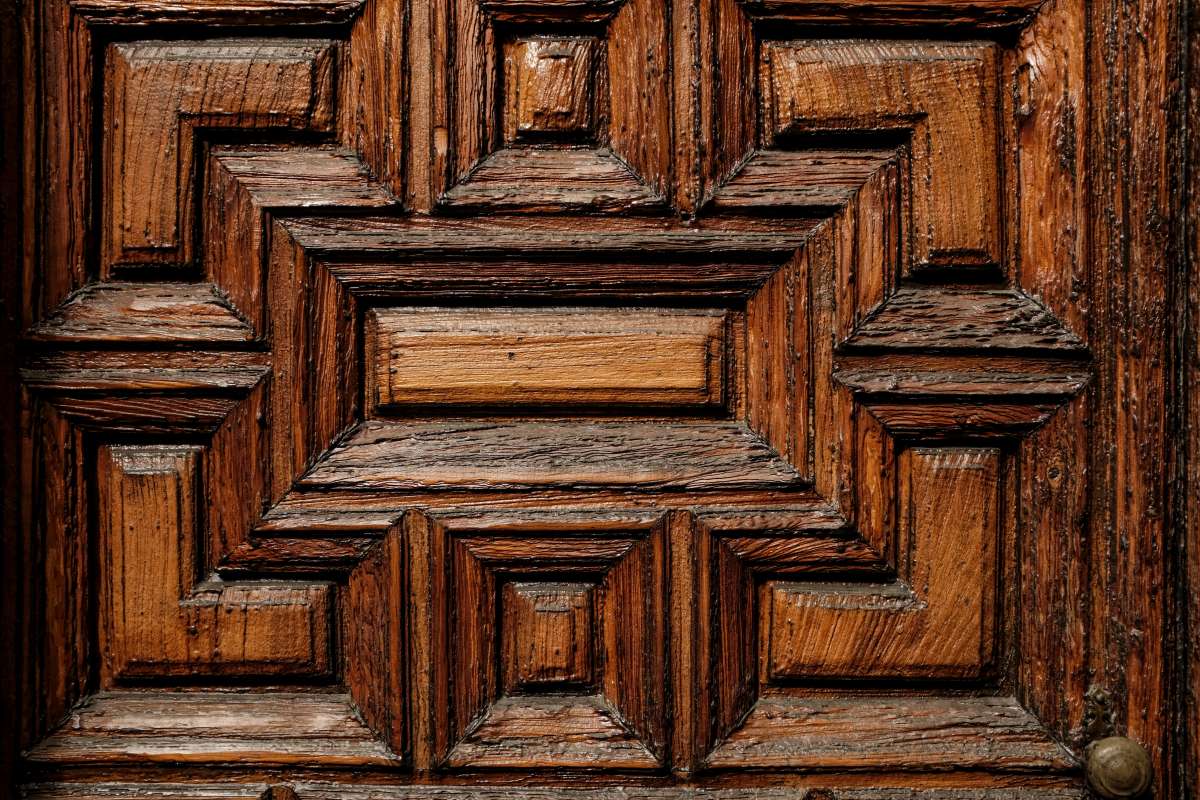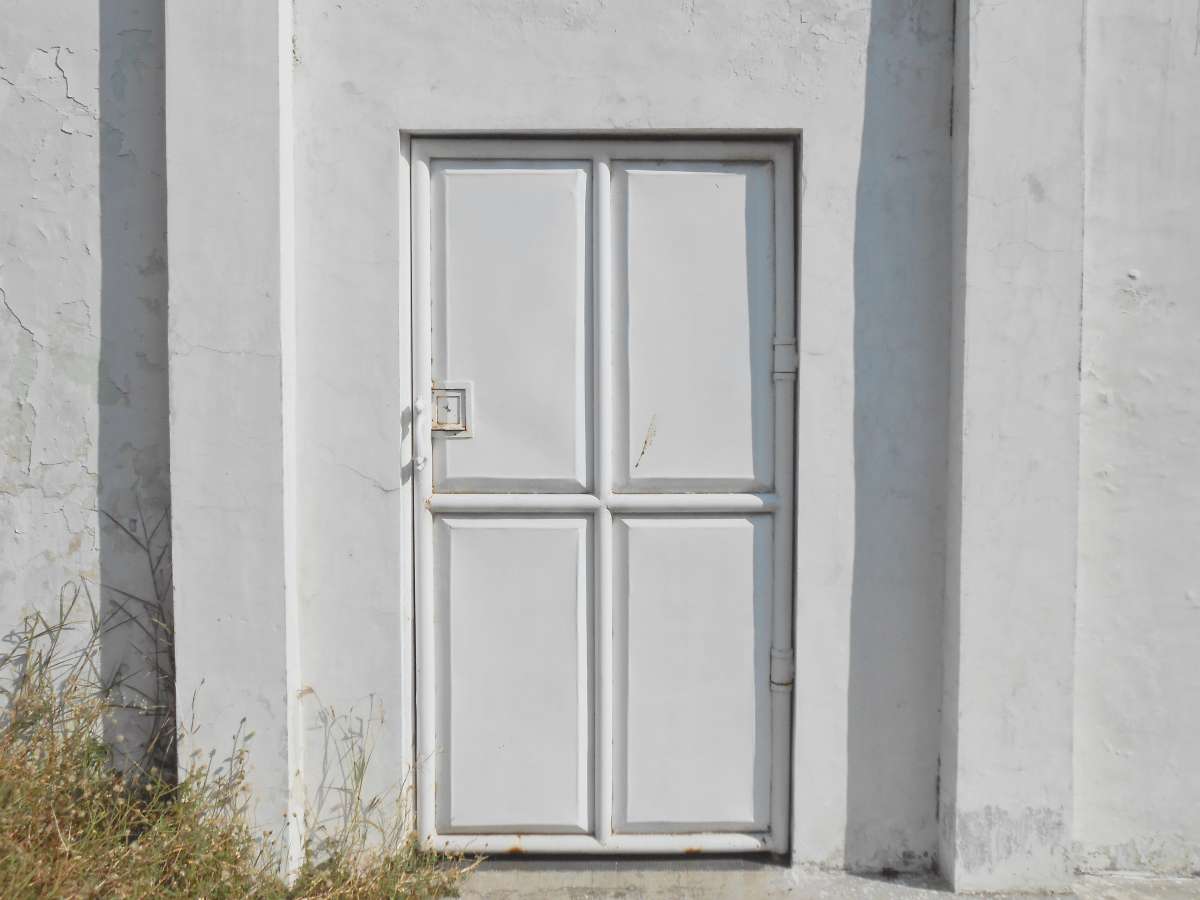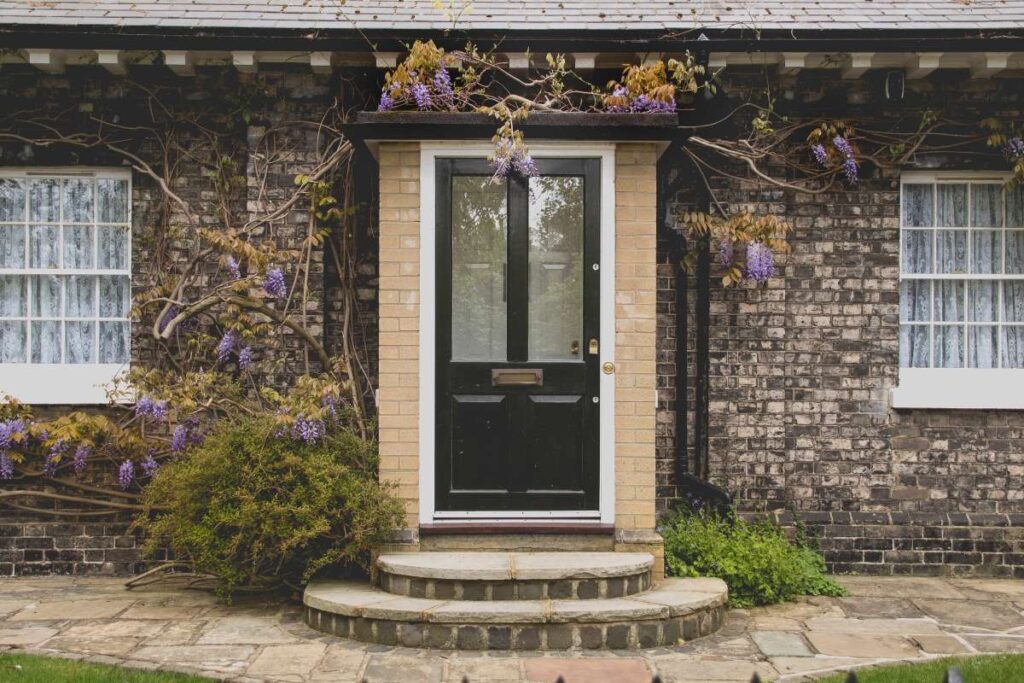Doors are more than simply something we use to enter and exit a building; they also serve as a visual marker for the transition between rooms.
Yet, the design, manufacture, and materials are just as crucial as the aesthetic quality.
There is a wide variety of door materials to choose from, and it is important to pick one that is aesthetically pleasing and practical for your home's needs.
In this post, we'll compare the benefits and drawbacks of five popular door materials so you can make an informed decision.
So, you're trying to figure out which material for your front door is best. It's not just you.
There is a wide range of styles and customisation options for external doors; however, you can cut down your options to wood, fibreglass, steel, or glass.
You should learn the basics of the various options before going out to get a new front door.
Aesthetic Value of Outside Doors
Doors are incredibly interesting to anybody with a passion for architecture, history, travel, or other cultures.
A door does more than just let people in and out; it also makes a statement and gives people a sense of safety and security.
The outer doors of a building separate us from the reality behind them.
A child sent to a principal's office for misbehaviour may associate the sight of that door with impending punishment.
A similar impression may be evoked by the aged wooden door of a rural farmhouse, which may prompt thoughts of friendliness, warmth, and frugality.
To that end, the external doors serve as a transition point between the inside and outside worlds.
In addition to adding intrigue, they preview the residents' unique tastes and personalities before they are ever seen inside the house.
Perhaps visitors to the home of a garden enthusiast might be forewarned by a modest wooden door covered in flowers and vines.
Just as a home's interior design can disclose identifying characteristics about its inhabitants and architecture, so can the front entrance.
Which Material Is Better For External Doors?
There are numerous reasons why outside doors must look good. The energy efficiency for your home should not suffer because of the front entrance, though.
Most external doors are made of wood, steel, fibreglass, or glass. We'll review the benefits and downsides of each of these alternatives in more depth below.
Wooden Doors

Exterior doors made of wood are a popular choice since they can be personalised with stained glass inserts, one-of-a-kind door knockers, and other beautiful and practical accessories.
Wooden doors, made of a natural material, look well with many other types of exterior cladding, especially those made of natural materials like stone, bricks, or wood.
Wooden doors also have natural insulation capabilities, which is a plus.
The R-Value of a one and a quarter inch thick outside wood door with such a solid core would be a little above three.
Naturally, the R-value will increase about the thickness of the door. Yet, it is necessary to discern between great core doors and doors built from manufactured wood materials.
As their name suggests, solid core doors are essentially wooden concrete.
These are typically constructed with two layers of manufactured wood sandwiching insulation to enhance the door's thermal performance.
In contrast, plywood and other synthetic wood products are the basis for manufactured doors.
Water can easily harm manufactured wood doors. Hence they shouldn't be used outside.
However, solid-core wooden doors are frequently the most expensive available.
Rare and exotic hardwoods, like those used to make wooden doors, justify the increased cost. The moisture in the air can also cause wooden doors to deform over time.
If the door warps so badly that it undermines the airtightness of the building, the homeowners may have no choice but to replace it.
Wooden exterior doors are common because they may be easily tailored to fit specific dimensions and aesthetic requirements.
In addition, transoms and sidelights can be easily added to a wood front door to make it more unique.
The effects of time and weather on wood mean that it will naturally deform over time.
Because of this, the door's ability to keep air out may be compromised. Remember, external wood doors may need replacing more frequently than their fibreglass or steel counterparts.
The most common door material is wood because of the warmth and comfort it can bring to a home's interior.
Pros
- Staining or painting wooden doors in whatever colour you like is possible.
- Doors made of wood look great in both contemporary and older homes.
Cons
- Termites and rot are common problems with wood.
- These doors may also splinter when some time has passed.
- Hardwood doors are high maintenance since they need regular sealing and polishing.
- As time passes, wood can distort and swell because it absorbs moisture.
- Timber is an expensive commodity.
Flush doors have replaced traditional wooden doors in recent years due to their lower price.
These entrance doors include a wooden framework coated with plywood or MDF.
A flush door's sleek appearance comes from its soft core, which may be hollow or solid and filled with softwood blocks. These doors can be painted, veneered, or laminated for various aesthetic options.
Fibreglass doors
Fibreglass doors are one of a kind because they can be stained and painted to look just like real wood.
Unlike conventional doors, these can withstand the elements without warping.
Fibreglass doors are less likely to be damaged by everyday wear and tear than steel doors.
Due to fibreglass doors' poor thermal performance, insulated cores are now commonly installed between the two skins.
Without a window, the R-value of most aluminium and fibreglass-clad front doors is between R-5 and R-6.
And over five times the effective shielding value of a wooden door of the same size is provided by a door that is only 1-1/2 inches (3.81 cm) thick when no windows are present.
In contrast to solid-core timber doors, fibreglass doors are typically more expensive.
Fibreglass doors are notoriously tricky to cut to size.
They can be made to seem like wood with paint, but in general, they are less adaptable than real wood doors.
Fibreglass doors are not a popular choice since they require a normal door opening, which some homes do not have.
Consider installing a fibreglass front door if you would like the same classic beauty of wood but with improved durability. In addition, these doors can be tinted to mimic the looks of traditional wood in various colours.
They are available in various colours and can be painted to match any decor.
They are more resistant to scratches and dings than regular wooden doors, as was already mentioned.
Insulated cores are standard on fibreglass entry doors, providing even more, safeguard against the elements.
They may set you back a little more initially than wood alternatives, but the money you save on energy bills could more than make up the difference in the long run.
Steel Doors
Steel doors provide a sturdy entrance to your home and come standard with extra security features.
In terms of security, steel doors are widely regarded as the best option.
These doors feature steel panels both on the sides and an insulated foamy core in the middle.
They also provide protection and wind protection. Steel doors, on the other hand, are easily dented and can require extensive repair work.
Also, remember that not all steel doors provide a thermal break.
Because of its high thermal conductivity, steel doors can make a home warmer in the heat and cooler in the winter.
If you're concerned about break-ins, a steel door could be the best choice for your home's entrance.
Insulated foam and a steel panel make up the door's exterior.
Though this may make the doors very sturdy and effective at preventing even gentle breezes from entering the house, it also makes it difficult to repair any dents that may occur.
Because of this, the entire steel door may have to be replaced.
An emerging composite material is fibreglass, sometimes known as fibre-reinforced plastic.
Pros
- Fibreglass entry doors are weatherproof and long-lasting. They can't be broken, scratched, dented, or soaked with water.
- The materials used to construct these doors prevent warping, swelling, rusting, and corrosion.
- In this case, the door is made of fibreglass, but it looks like real wood.
- These entrances require little in the way of upkeep.
Cons
- Fibreglass entry doors are not cheap.
Glass Doors
Any of the doors above materials can have glass inserts installed in them. Homeowners who want to take advantage of natural light and the scenery can do so by installing a solid glass entrance door.
The level of privacy afforded by this door is low.
Nonetheless, it can be an excellent choice for houses in rural areas that would like to try out biophilic architectural style and enhance their view of the woods in their backyard.
Triple-paned glass doors loaded with argon gas are the most energy-efficient choice for an all-glass door.
Finally, a front door made entirely of glass is your choice for your home.
The most obvious benefits of installing glass outside doors are the increased visibility and natural light they bring inside.
On the other hand, these pros and negatives are subjective and rely on the individual; for example, while opening the door to let in natural light, you may also let in the chilly air, and your neighbours may be able to see into your home.
Choose a door made of wood, fibreglass, or steel with glass sidelights like transoms if these features are important to you.
You may combine a glass front door with one of the other three choices to get the best of all worlds.
When you want to show off a clear view of the outside or the interior, glass doors are the way to go.
Opaque glass can provide the desired level of privacy without sacrificing the airiness and sheen of transparent glass. In this scenario, an opaque window sliding door separates the bedroom and the bathroom.
Pros
- Since glass is see-through, it creates a feeling of spaciousness inside the house.
- Frameless glass doors, especially those that lead to a balcony or patio, let in a lot of natural light and are a terrific way to expand your living space.
- The nicest aspect about these entrances is that glass doesn't rot like wood or warp like metal when exposed to moisture.
Cons
- It's important to keep glass doors spotless at all times.
- Scratches are easily visible on the glass.
- Doors made of transparent glass are not the best choice if you value privacy in your home or room; instead, you should use frosted or lacquered glass.
Steel Doors vs. Fiberglass

Many homeowners find that fibreglass of steel doors are superior to wooden ones. The professionals explain that doors are kicked, smashed, and subjected to extreme temperatures during their lifetimes. It's also worth noting that not all materials are created equal.
A steel or fibreglass front door will help you avoid these problems. In addition, steel doors are far more energy efficient than wooden ones, much like fibreglass ones.
To cut expenditures, steel doors are recommended for homes. Heavy-duty galvanised steel is used to encase sturdy foam cores outside steel doors.
Reinforced steel doors plus steel frames are the most secure option, and they cost less than wood and fibreglass doors and frames.
Steel doors are still a safe choice for householders since they are difficult to kick down or saw through.
Fibreglass doors are the weakest and most easily broken into compared to iron and wood.
Unlike their fibreglass or wood counterparts, steel doors are easily damaged and scratched.
Depending on the climate, they might also become uncomfortable to the touch. Most homeowners will paint it a light colour to reduce the amount of heat absorbed by the door.
Other Things to Consider
The budget is always a major consideration throughout construction and remodelling.
Prefabricated external doors made of wood, fibreglass, or steel can be expected to cost the following amounts in the spring of 2021.
New wood doors might cost anywhere from $2,500 and $4,000 or more, depending on the quality of the wood and the type of treatment you want.
Wood doors are the most aesthetically beautiful yet have the lowest energy efficiency.
Prices range from $1,200 - $2,500 for high-quality fibreglass entrances.
Poorly built doors may crack in freezing temperatures. Thus, quality is crucial. They come in many different styles, some of which even have a wood-like finish.
The energy efficiency and newness of fibreglass doors have made them a popular alternative to traditional materials like wood and steel.
Steel doors are the cheapest option, with installation costing between $700.00 and $2000.00.
They can be used on business buildings, storage sheds, garages, and even rustic residences, but they won't win any awards for aesthetics.
While picking the best option for outside doors, remember that steel is the winner when comparing fibreglass to steel strength.
uPVC
The uPVC profiles used to construct these door frames feature many air chambers and are internally strengthened with galvanised steel.
Pros
- uPVC entrances are sturdy, lightweight, and long-lasting. They are safe for use in salty environments since they do not rust, corrode, or flake.
- For added safety, uPVC door frames can have shoot bolt locks or multi-lock systems fitted.
- Cleaning uPVC doors is as simple as regularly wiping them down with a moist cloth.
Cons
- UPVC door frames may fade and turn yellow over time. So invest in only high-quality uPVC entrances.
- uPVC doors can be purchased in a few basic hues and styles.
Aluminium
An aluminium door frame is a great option for a more urban or contemporary feel.
Pros
- Aluminium entrance doors are sturdy and reliable.
- Door frames are often made from lightweight aluminium pieces that are powder coated in a wide range of colours.
- Doors with aluminium frames won't warp or split as wooden ones would.
Cons
- It is not recommended to use aluminium doors for coastal areas because of their susceptibility to rust and discolouration from oxidation within the influence of salt-laden air.
FAQs About Door Materials
Wooden doors are the highest quality door on the market. As the name implies, wooden doors are made of 100% natural wood (save for the hardware). These doors are not necessarily made of one piece of wood, as trees that large are hard to come by these days.
Steel. A steel door is considered to be the strongest type of door. However, only by a small margin over wood and fibreglass. Steel doors are by far the least expensive entry door on the market.
According to Vastu principles, wooden doors are suitable for the main door, as it is an arch to bring progress and happiness. The main door should also be the largest one in the house and always look the best.
Steel doors are among the best front doors for security. It's nearly impossible to break through; even if beaten or abused, these doors are more likely to dent than come down.
Wood doors are usually the most expensive option for an entry.

